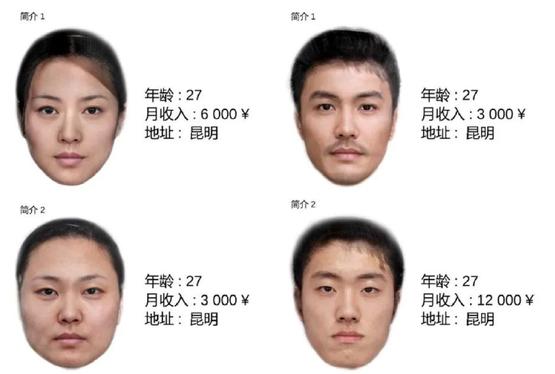“Being blind dated every festive season” has become a nightmare for many single young people. Going home during the Chinese New Year, only the first two words of “love each other as a family” are left – “blind date”.
Being forced by parents to go on a blind date is scary, but what is even scarier than the blind date is that the person on the blind date is too weird.

Even a 70-year-old man with a house and a car can’t escape the clutches of a blind date (no | @英国企业文化教育局
The other party is obviously an “excellent young man” in the words of parents, but when you see a real person and chat for a few words, all you have left in your heart is the barrage of galloping horses and galloping horses. Especially women, sometimes they can’t help but wonder if they are born by their parents——
“In my parents’ mind, do I have to be worthy of such a man?”
“When everyone complains about their blind dates, I just want to complain about my mother!”

My parents arranged a wonderful blind date, and my heart was broken | GIPHY
Is it girls who are too picky, or parents who are too casual? A study conducted in Kunming showed that the blame really has to be borne by the parents – when looking for a partner for their daughters, parents may abandon the rich and handsome guy and choose a man with low appearance and low income as a son-in-law. (Yes, you read that right, looks and incomes are low.) The study was published in the British Journal of Psychology.
When money and appearance are incompatible
In terms of finding a partner, the inconsistency in the preferences of the client and the parents has long been explained in evolutionary biology. Because the genes of parents and children are not completely identical, the blind date that is most in line with the interests of the parents is not necessarily the best in the interests of the children. Scientists infer that this unequal interest will result in different mate preferences between the two generations.
For children, the “physiological quality” of a spouse is more important . Find a partner who is healthy and good-looking, and the chances of giving birth to a high-quality baby and better continuing your own genes are higher. But for parents, the trade-off isn’t worth it, especially if there’s more than one child in the family.

Children pay more attention to “physiological quality” | Pixabay
For parents, they pay more attention to the external resource conditions of candidates . If the children’s spouse has good economic conditions and high social status, other children or family members of the parents can also benefit from it. If the children’s spouses are poor enough to take good care of their grandchildren, parents need to invest more energy and resources to make up for this deficiency, which affects investment in other children and grandchildren.
Of course, the most perfect situation is that the spouse of the children has both money and beauty. But ideals are full, and reality is cruel. We often have to make a choice between the two when choosing a mate.
So, is the trade-off between children and parents really as inferred by scientists? Or is reality more unbridled than theory?
Choosing a partner for a baby is different for boys and girls
Studies from many countries have verified that there are differences in mate selection preferences between parents and children . However, most of these experiments present a hypothetical scenario through questionnaires, and the participants are not really ready to help their children find a partner, or even have children at all. In order to make the experiment more realistic and in line with China’s national conditions, this time the researchers targeted the dating market in Kunming, Yunnan.

A blind date corner in a park | People’s Daily Online Guangxi Channel
The researchers went deep into Cuihu Park in Kunming and found more than 300 parents who were looking for a partner for their children as the “parents group”, plus more than 40 single dogs in the park who were looking for a partner and 230 college students from Yunnan Normal University as the “children group”. The mate selection preferences of the two groups were compared. As for why not contact the children of those parents directly? First, due to the principle of anonymity, the researchers were unable to obtain the contact numbers of their children; second, some parents said that their children did not know that they were being “blinded”…
In the experiment, the researchers synthesized an “attractive” and “unattractive” face for each gender, and designed several different income levels to correspond to it. After sorting out several combinations, two blind dates with different appearances and different incomes are presented in front of parents and young people . Will they choose the same person?

“Attractive” faces (top) and “unattractive” faces (bottom). Combined with the set income, the researchers proposed 4 trade-offs: (1) There is no trade-off: high appearance + high monthly income vs. low appearance + low monthly income; (2) low degree of entanglement: high appearance + Monthly income of 5,000 yuan vs. low appearance + monthly income of 6,000 yuan; (3) moderate degree of entanglement: high appearance + monthly income of 3,000 yuan vs. low appearance + monthly income of 6,000 yuan; (4) high degree of entanglement: high appearance Value + monthly income of 3,000 yuan vs. low appearance + monthly income of 12,000 yuan | British Journal of Psychology
The results show that when the person looking for a partner is a boy, parents and sons tend to make the same choice-choose the good-looking one. But when it is a girl who is looking for a partner, the daughter has higher requirements for the appearance of the spouse, and the parents are more inclined to choose a son-in-law with a high monthly income.
What’s more interesting is that when there is no trade-off choice , that is, when the blind date partner is rich and good-looking or low-income and low-quality, less than 5% of women choose the candidate with lower beauty, but 26 % of the parents chose a son-in-law with low appearance for their daughter. In other words, parents are more inclined to choose men with lower appearance and income, while daughters value both appearance and income.
This result was beyond the researcher’s expectation. “You must know that we added the situation where there was no trade-off, just to make the experimental design more complete.” The researcher said, “We originally thought that everyone would choose high-value, high-income candidate.”
As promised, there are trade-offs.
Why do parents just refuse to take
The researchers offered two possible explanations for this surprising result:
In the hearts of parents, the difference in the appearance of candidates is not so big
According to the score of appearance, in the eyes of people over 40, the gap between a low-value face and a high-value face is not that big . In other words, people who children think are not good-looking may be okay in the eyes of their parents.

In the eyes of parents, there is not much difference in appearance | prweb.com
However, this cannot fully explain why only female parents choose candidates with low appearance , because the parent group also recognizes that there are obvious differences in the appearance of the two types of candidates. At the same time, male parents think that the attractiveness of low-value female candidates is not bad, but basically they will not choose them as daughter-in-laws.
The son-in-law is not good, the chance of divorce is small
A more likely reason is that women’s parents believe that if the son-in-law is rich and good-looking, the chances of the daughter breaking up or divorcing are greater. Therefore, they tend to choose sons-in-law with low appearance and low income to ensure the “safety” of their daughter’s marriage.
When gender differences are taken into account, the cost of divorce is higher for women than for men . For example, it is more difficult for a divorced woman to find a suitable second marriage partner than a divorced man; if she has children after a second marriage, the woman will bear more costs.
From the perspective of a daughter, even if she divorces a high-quality man, the excellent genes inherited by the offspring can make up for part of the loss caused by the divorce. But for some parents, the loss of a divorced daughter who inherited only 50 percent of their genes far outweighed the compensation .
Girls go on a blind date, don’t lose your confidence
At present, researchers do not yet know how much genetic and cultural factors account for the difference in preferences for finding a husband and son-in-law. This may not only be the result of human instinct to pursue the maximization of genetic benefits in the evolution process, but also the result of many social factors. Otherwise, they also inherit 50% of the genes. When choosing a partner for their son, why wouldn’t the parents give up their appearance for money?

Don’t Lose Your Self-Confidence Because of Your Parents’ Choice | Pixabay
Where differences exist, it is important to distinguish between the parent’s opinion and one’s own. Falling in love and getting married is a private matter that you know well, and no one deserves more respect than yourself. When going on a blind date, girls must remember not to lose your self-confidence because of your parents’ choice . Only you know what is best for you.
references
[1] Bovet, J., Raiber, E., Ren, W., Wang, C., & Seabright, P. (2018). Parent–offspring conflict over mate choice: An experimental study in China. British Journal of Psychology .
[2]Daughters view the physical attractiveness of their spouses as more important than their parents. https://ift.tt/xbNYV0S
Author: Jinyi Editors: vicko238, Fangorn, Maimai
an AI
Perhaps, in the eyes of the other party, you are also a wonderful blind date
This article comes from Guoke, and shall not be reproduced without authorization.
If necessary, please contact [email protected]

This article is transferred from: http://www.guokr.com/article/463334/
This site is only for collection, and the copyright belongs to the original author.